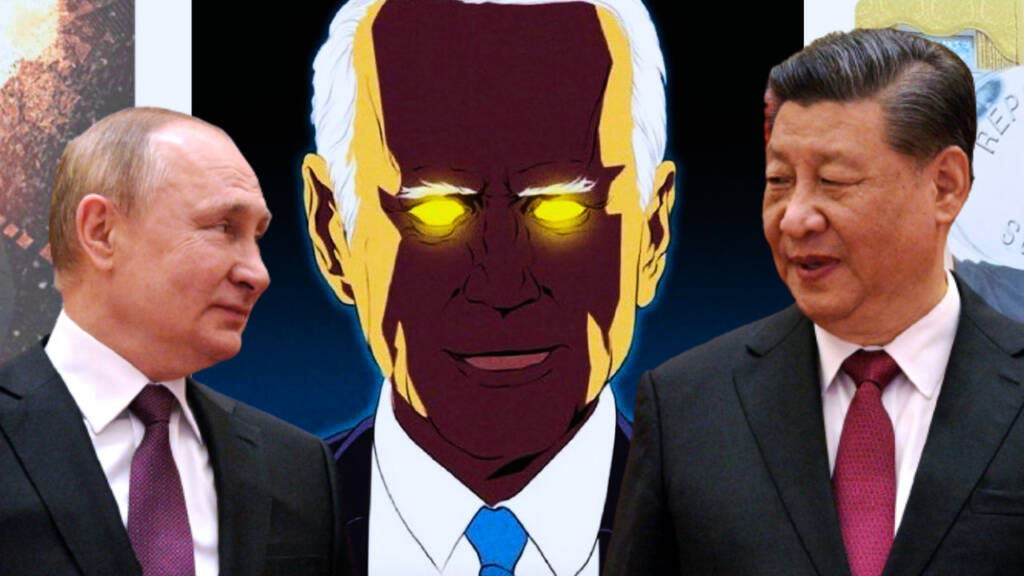At first glance, the camaraderie between Russia and China appears to be a diplomatic painting worthy of the Louvre – a harmonious bonding of two geopolitical giants.
However, beneath the facade of this seemingly true partnership, the undercurrents of dissatisfaction and subtle betrayal are turning the calm waters into a turbulent sea.
These disturbances’ ripples have found a shocking development catalyst: China’s refusal to back Russia in its bitter dispute with Ukraine.
China and West
The Russo-Ukrainian war has tested the Sino-Russian relationship, unmasking the fragility of this so-called ‘strong’ alliance. Russia’s expectations were dashed when China announced its stand on this significant geopolitical event.
In an unexpectedly calm tone, China declared it would not supply arms to its ‘all-weather ally.’ Zhou Chenming, a Beijing-based Yuan Wang military science, and technology think tank researcher, stated, “Beijing is keen on keeping its close economic partnership with the West. It will not offend its Western trading partners, including the US and the EU.”
This decision by Beijing signaled a tectonic shift in global geopolitics, opening up an intriguing Pandora’s Box of questions. Is this the beginning of a rift in the Russo-Sino bond, or is it merely a temporary realignment of geopolitical interests?
Read More: The Taiwan-China Conundrum: Decoding the Ongoing Crisis
China punishing Russia
But this isn’t an isolated instance. What’s more captivating is that when China meets the eagle, it often pledges allegiance in a manner detrimental to the bear. This was clearly manifested after the US Secretary of State, Anthony Blinken’s visit to China.
Immediately after the meeting, the Bank of China surprisingly started terminating Russian transactions in Chinese yuan, US dollars, Hong Kong dollars, and euros through its correspondent accounts.
Pavel Semyonov, chairman of the board of Modulbank, was quick to blame the West, but the real culprit was clear: China had chosen the West over its so-called best friend, Russia.
These moves tarnish the picture-perfect portrait of the Sino-Russian relationship and reveal China’s ultimate desire: to remain economically linked to the West.
Read More: Meloni and Macron join ranks to take on Scholz’s China push
The territorial war
Furthermore, one cannot disregard China’s territorial ambitions. Its eyes glisten at the prospect of new territories to claim, and friendship isn’t a barrier. In a series of digital skirmishes, Chinese netizens, including officials and diplomats, have begun staking claim over Vladivostok, a Russian city.
China argues that Qing’s Manchurian homeland was annexed by the Russian empire in 1860 after China’s defeat in the Second Opium War. This provocation fuelled the tensions between Russia and China, as Beijing showed no signs of curbing these territorial claims.
All these revelations force a critical revaluation of the Sino-Russian relationship. The narrative of an enduring friendship is an elaborate ruse, a smoke-and-mirrors game played on the international stage. The probability of escalating tensions between these two countries seems more plausible than ever.
If Russia becomes a liability to China, Beijing might not hesitate to abandon its supposed ally. This would not only turn the world’s geopolitical dynamics on its head but also lead to economic repercussions for Russia.
After all, in the ruthless arena of global politics, the rules are always dictated by self-interest and survival, not friendship. The curious case of the US-China has effectively painted a fascinating yet complex picture of the future of global politics.
Read More: Did Russia turn into a $15 trillion economy overnight?
As the delicate balance shifts, we’re left with a thrilling question: how will Russia react to the Paper Dragon’s betrayal, and what could this mean for the international stage? Indeed, the political chessboard seems primed for a major upheaval. Only time will reveal the masterstroke.
Watch More:
